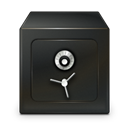Windows File History Alternatives

Windows File History
File History when enabled protects files from within the libraries, desktop, favorites, and contacts folders and creates copies of the files. in any event of a system refresh, reset or crash the files that were backed up through File History can easily be restored. File History's restore interface has been made easy and simple to find and restore any version of files that were lost or damaged. File History is turned off by default and needs to be turned on manually and configured how it will save copies of files. Also, before using File History you will need an external storage device or network location with enough storage space to save copies or versions of files for all users.
Best Open Source Windows File History Alternatives
If you want similar software to Windows File History, we have a list for that. Are there Windows File History alternatives out there? Let's find out.

Duplicati
FreeOpen SourceMacWindowsLinuxDuplicati is a backup client that securely stores encrypted, incremental, compressed backups on local storage, cloud storage services and remote file servers. The...
Features:
- Encrypted backups
- Schedule Backup
- Cloud Storage
- Encryption
- Incremental backup
- Automatic Backup
- Cross-platform
- Data deduplication
- Email notifications
- Local Storage
- Support for Amazon Glacier
- Web-Based
- WebUI Management
- Backup
- Backup to Google Drive
- Cloud sync
- File Compression
- File Versioning
- Guided configuration
- Multiple languages
- Retention Schedule
- Support for SFTP
- Support for WebDAV

Déjà Dup
FreeOpen SourceLinuxDéjà Dup is a simple backup tool. It hides the complexity of doing backups the 'right way' (encrypted, off-site, and regularly) and uses...
Features:
- Backup
- Encrypted backups
- Encrypted backups
- Incremental backup
- Remote backup
- Schedule Backup
- Well integrated in Debian 9

Back In Time
FreeOpen SourceLinuxBack In Time is a simple backup tool for Linux, inspired by "FlyBack project". You only need to specify 3 things: -...
Features:
- Incremental backup
- Backup

TimeShift
FreeOpen SourceLinuxTimeShift for Linux is an application that provides functionality similar to the System Restore feature in Windows and Time Machine tool in Mac OS. TimeShift protects...

Duplicacy
Free PersonalOpen SourceMacWindowsLinuxDuplicacy is a new generation local and cloud backup tool that supports cross-computer deduplication. It is free for personal use and source code is available to...
Features:
- Backup
- Cloud based
- Incremental backup
Upvote Comparison
Interest Trends
Windows File History Reviews
Add your reviews & share your experience when using Windows File History to the world. Your opinion will be useful to others who are looking for the best Windows File History alternatives.